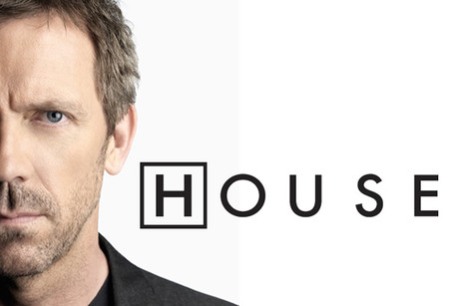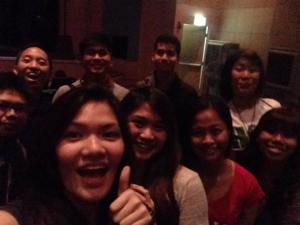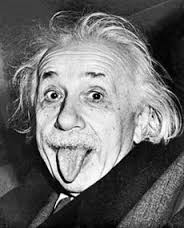GROUP 1 – ABORTION (Bagalawis, Cabrera, Lim, Mertola, Ravago, Urbiztondo)

ONE DAY, ONE ROOM
Ethical Issues:
- House wanted the baby to be aborted for he thinks that it would save Eve the pain later on in life because she would always remember that this child was a product of rape.
- The homeless man wanted to die in suffering simply because he wants someone to remember him.
House’s Answer to Issue:
- House and the patient argued about abortion and the philosophies for it being practical, but the patient insisted to keep the baby. House talks about good and evil, and figures out that she doesn’t think that her rapist will be punished. As she admit why she chose her, House admits the story he told was true and eventually have the patient open up and also respect her decision.
- Cameron tries to have the cancer patient accept palliative care but the patient wants to be remembered. He thinks that he will be remembered when he dies in pain. Cameron finally agrees not to medicate the cancer patient, as the patient eventually dies.
Principles Related:
- Principle of Respect for Autonomy
- Principle of Informed Consent
- Principle of Justice
The principle of respect for autonomy and informed consent works hand in hand. It is both respecting whatever the decision of the patient is and making sure that everything done to the patient must be given proper consent. Just like in this episode, “One Day, One Room”, the doctors respected the decision of the raped girl that she wants to be treated by Dr. House and that she wants to stay in the hospital. Dr. House really did treat the raped girl. He stayed with her and opened up with each other which helped her recover and finally come to a conclusion. Plus, Dr. House didn’t do anything to her without her consent, such as terminating the “rape baby”, as he really insists on doing. Also, Cameron respects her patient, the homeless man, that he wants to suffer because he wants to be remembered. Cameron then exercised the principle of informed consent and respect for autonomy together, because Cameron did not do anything the homeless man does not want to be done on him. Lastly, the Principle of Justice must be shown by Dr. House. Dr House should treat all the patients fairly because they are paying for their treatment, therefore they deserve every treatment in the world even if it is just a bug biting them in the ear.
Ethical Evaluation:
The group has agreed that a doctor must consider the consent of a patient but must also consider the condition this patient is in. A good example could be when Eve wanted to keep the baby because she is pro-life and in that scenario Eve wasn’t actually in the right sense of mind at that time because of the trauma she had suffered and Doctor House saw this in her which made him convince her that she must not go through the pregnancy for this could cause her pain in the future, and by the end of the episode it was said that Eve actually went through with the abortion. Also, in the case of the dying man, even though you think it is not right to let a dying man suffer so much just because he wants to remembered, one must always consider the autonomy of the patient and the decision of the patient was to die in his hospital bed and be remembered by someone because he belives he is a nobody.
FETAL POSITION
Ethical Issues:
- The fetus was killing the mother from the inside and House wanted to kill the fetus in order to save the mother. But the mother doesn’t want to give the consent in killing her unborn baby.
- Cuddy let her emotions cloud her judgement by risking the life of both the mother and the fetus just to try and continue with saving the fetus.
House’s Answer to the Issue:
- Instead of terminating the pregnancy, Cuddy thought of a surgery that almost killed the patient and the fetus but didn’t. She proved House that his plan of killing the fetus wasn’t their last resort in saving the patient’s life.
- Cuddy realized that she has to be more objective with regards to her work. She has to be more professional, instead of letting her emotions get the best of her.
Principles Related:
- Principle of Informed Consent
- Principle of Respect for Autonomy
Just like in the episode of House MD “One Day, One Room”, the Principle of Informed Consent and Principle of Respect for Autonomy are clearly noticeable in the episode “Fetal Position”. Both principles work together because both of them are about the decision that the patient will be making. Principle of Informed Consent is about giving the patient the right to make decisions about their medical care and to be given by the attending physician all available information. It does not only imply the patient to accept the suggested treatment by the doctor but also to choose among alternative treatments and to refuse the suggested treatment. This is clearly shown in the part where Emma refused Dr. House’s suggested treatment which is to terminate the fetus, rather, she asked for an alternative treatment which is to save both of them and Dr. House complied because it is his duty to respect his patient’s decision. Principle of Respect for Autonomy works hand in hand with the Principle of Informed Consent because every time the doctor will ask for the patient’s consent he shall always respect the patient which is the main concept of the Principle of Respect for Autonomy. This principle is evident every time consent was asked to the patient and the doctor’s duty is to respect the patient’s decision. Both principles were almost violated in the part where Dr. House was ready to cut the umbilical cord to terminate the fetus even though Emma undoubtedly stated to refuse the termination and asked for an alternative treatment to save both of them. In this part, Principle of Double Effect can be associated to what Dr. House did because maybe the reason of his action to terminate the fetus is the thought that it is for the greater good and outweighs the bad effect.
Ethical Evaluation:
Fetal Position: Dr. House, being logical and rational informed Emma Sloan that her baby is the one causing her organs to fail. As the context of choice would put it, all the choices that people make are based on religion, ethnicity, social status and past experiences. Given that Emma Sloan is already 42 years old and she already had three miscarriages, this might be her last chance of having a baby. Hence, Emma Sloan refused to terminate her baby and opted for another solution. The medical practitioner should respect the decision made by Emma and provide the best care that they can give for Emma and her baby. Hence, Cuddy’s judgment was clouded by her emotions so she continued with the procedure. However, her decisions risked Emma’s life and her baby.


